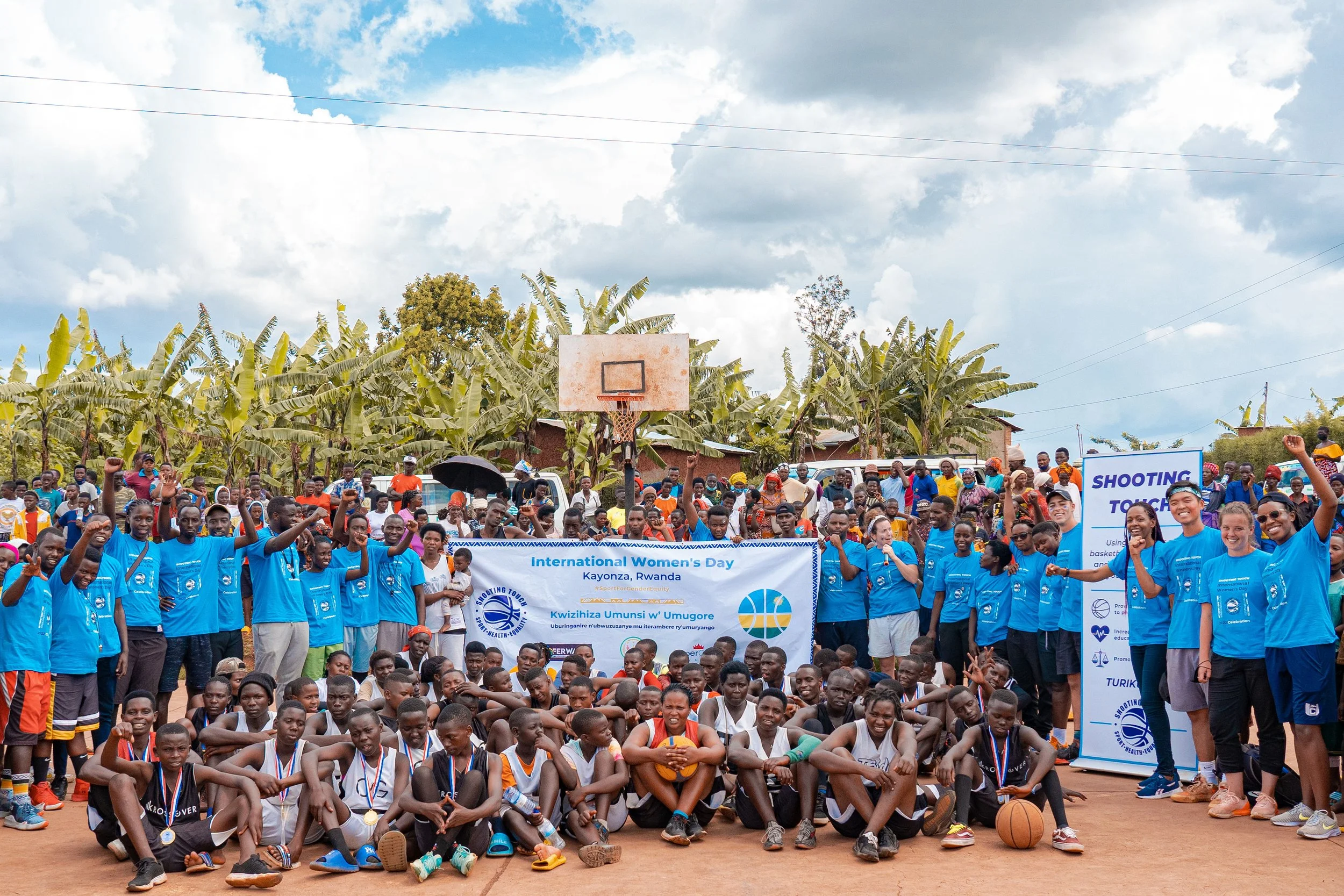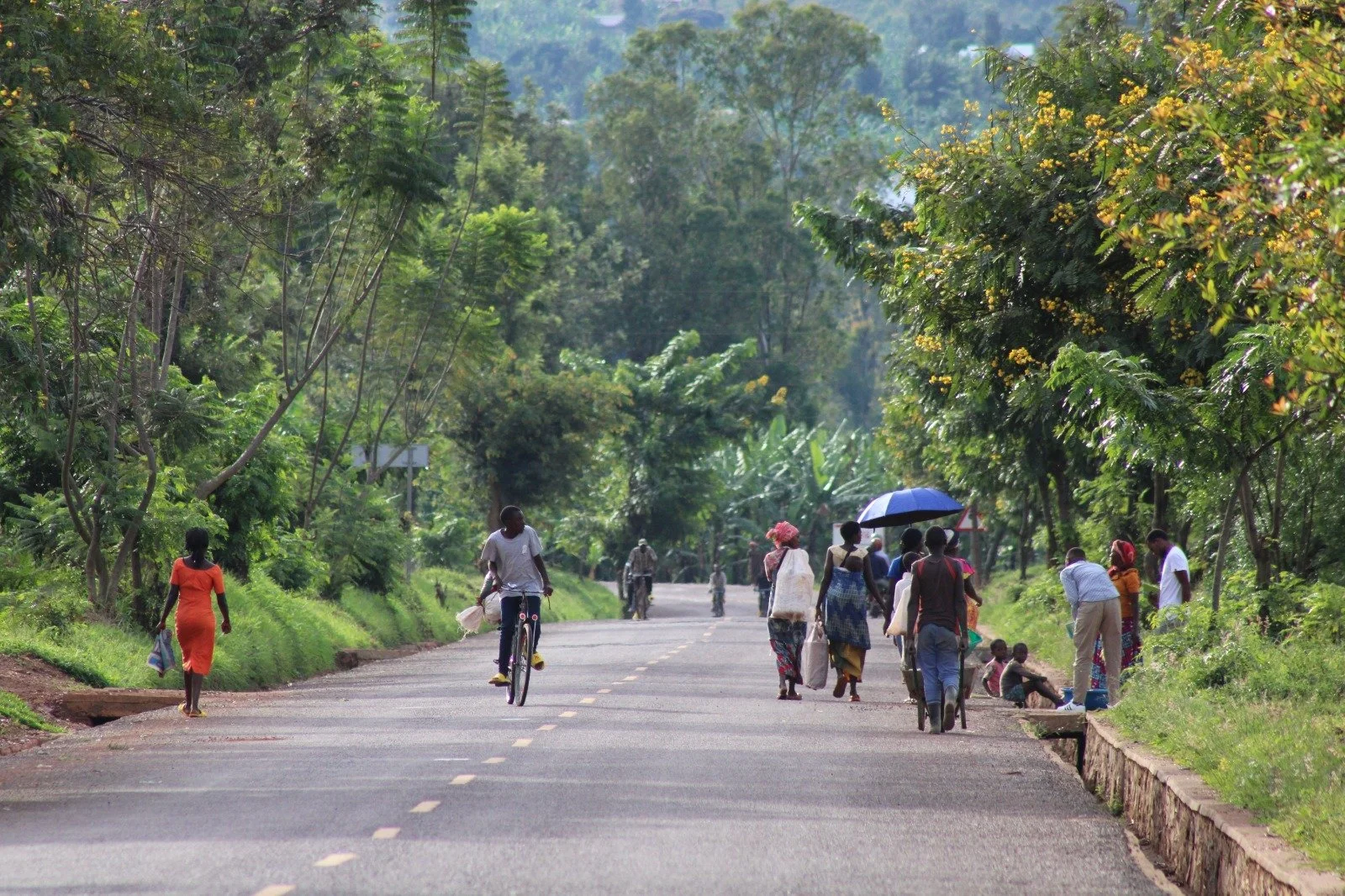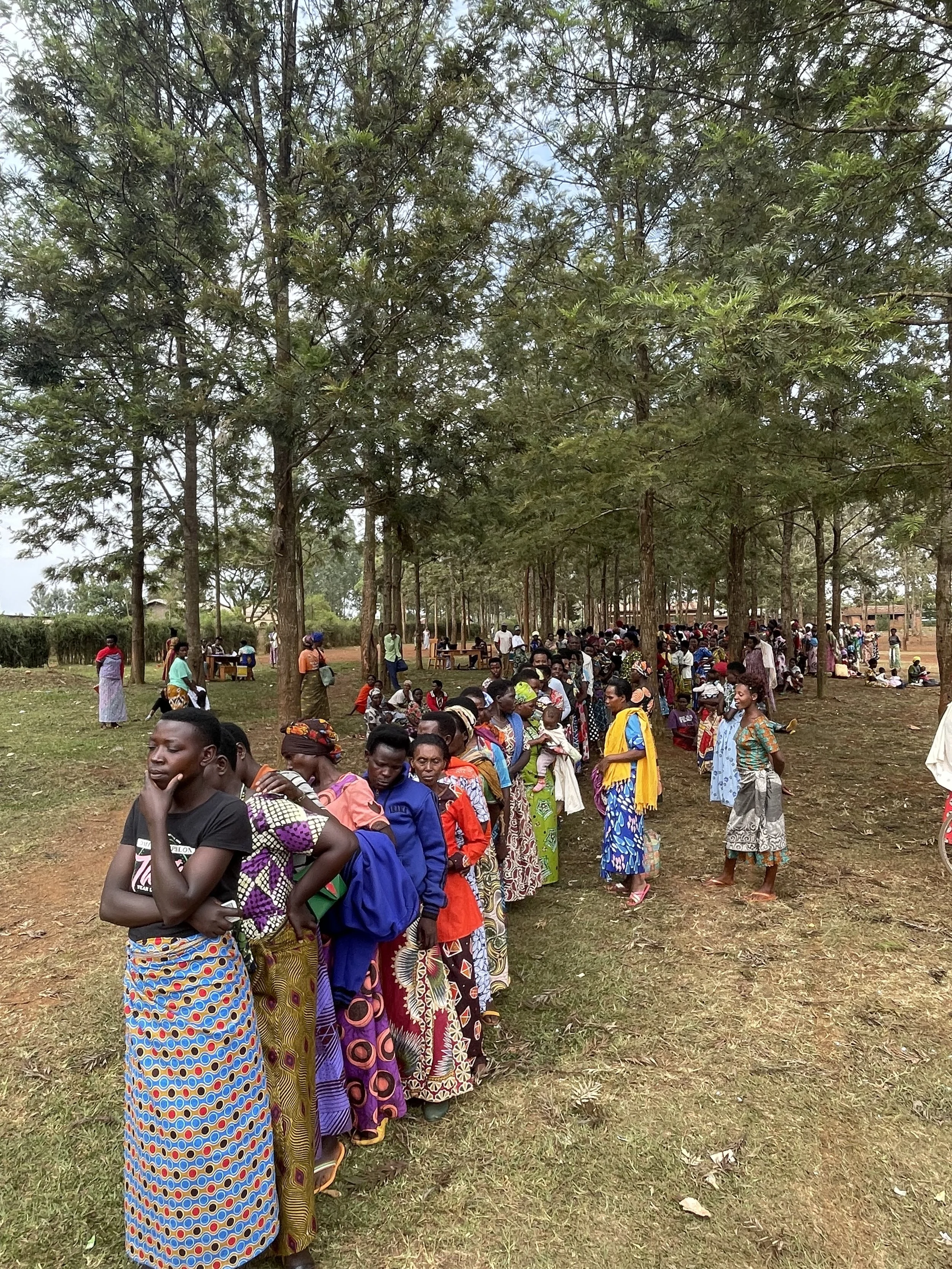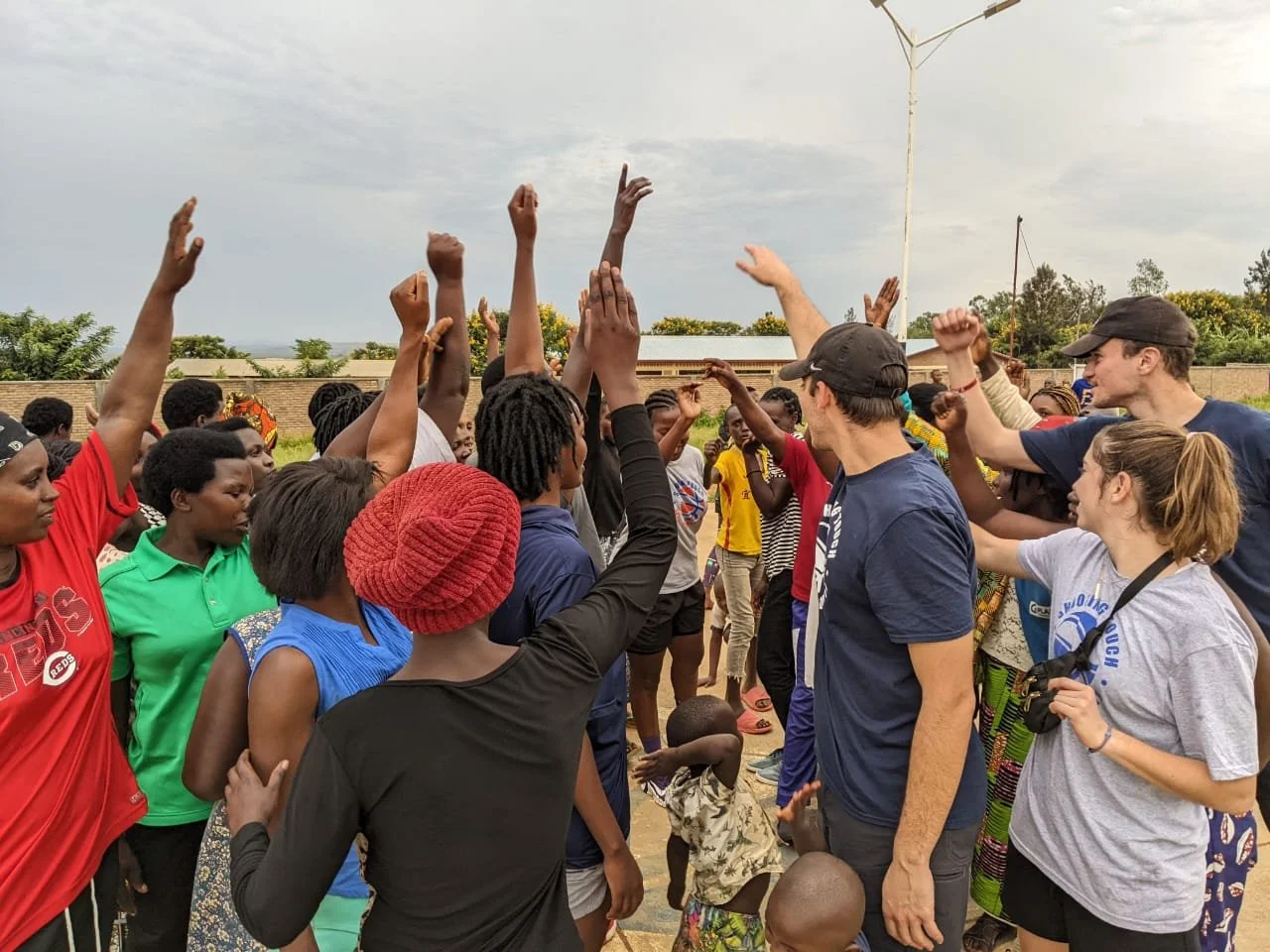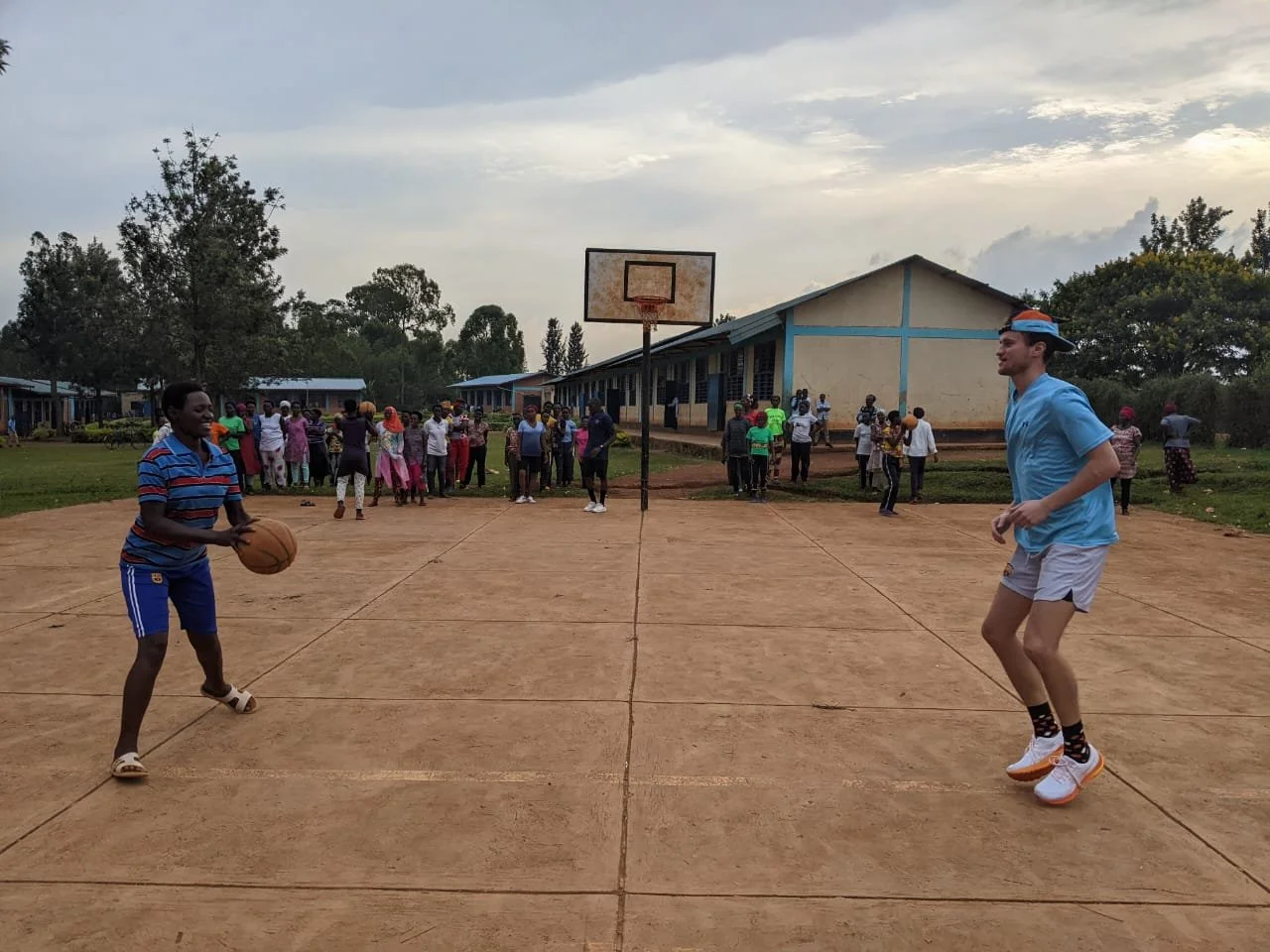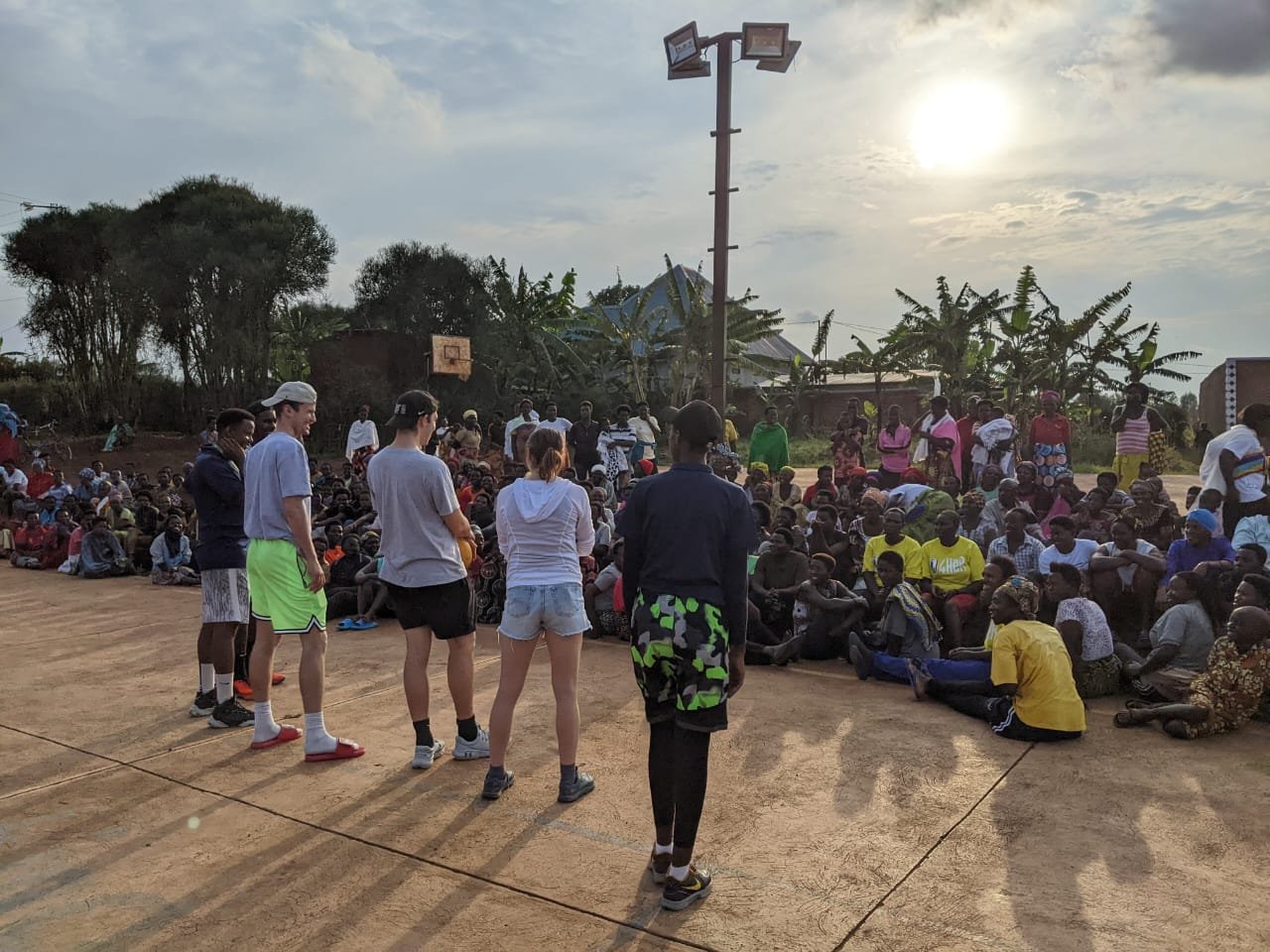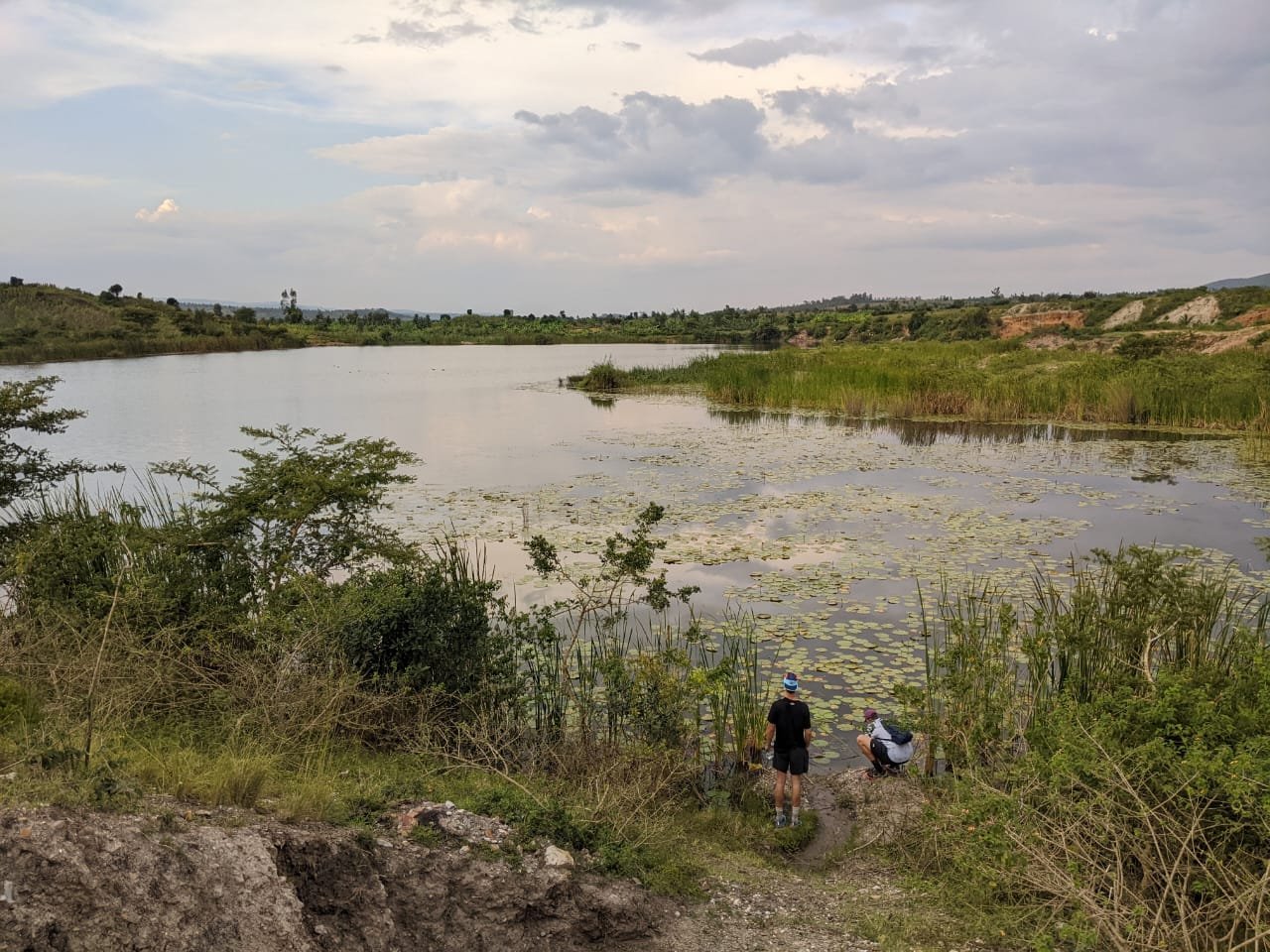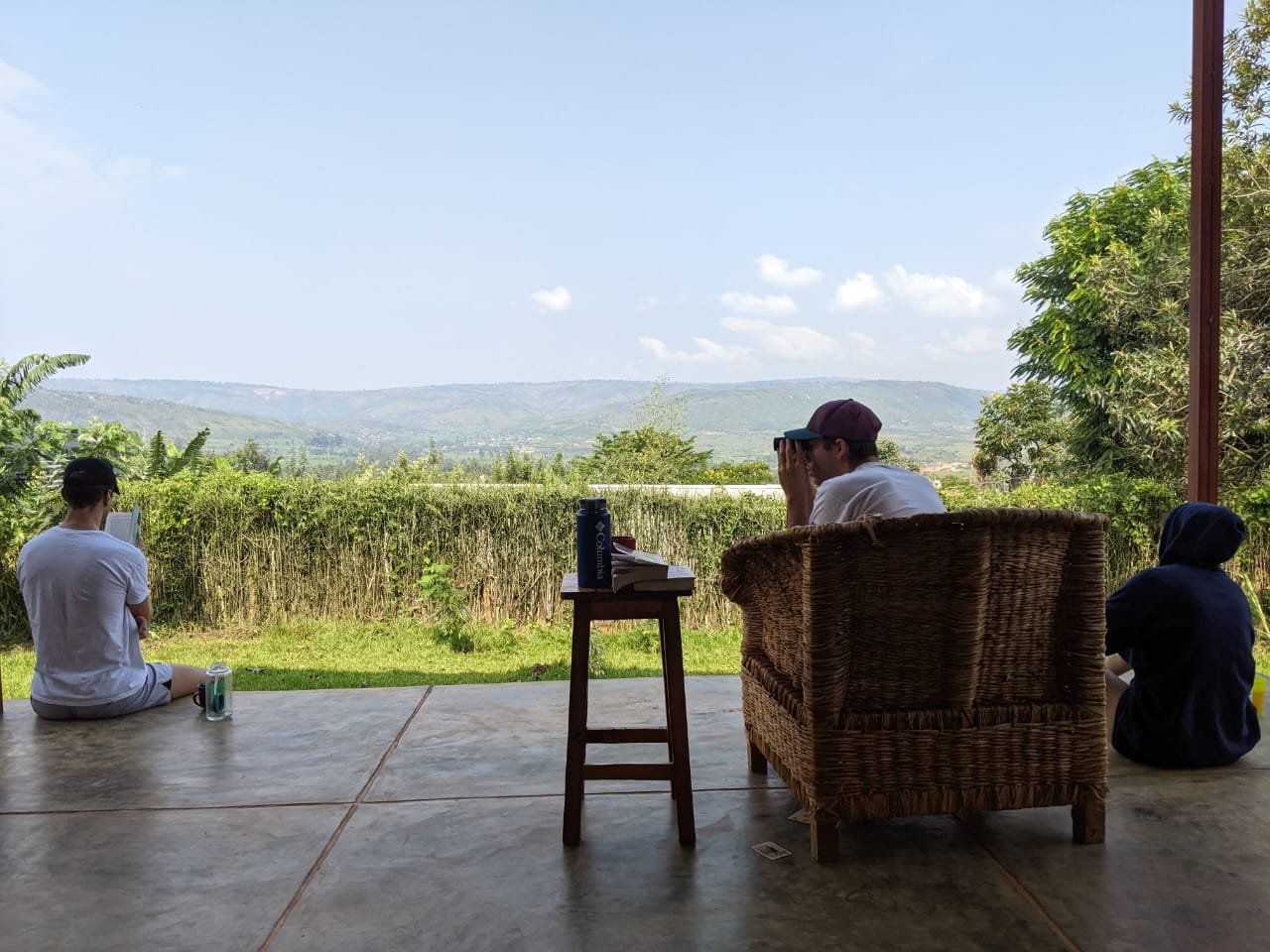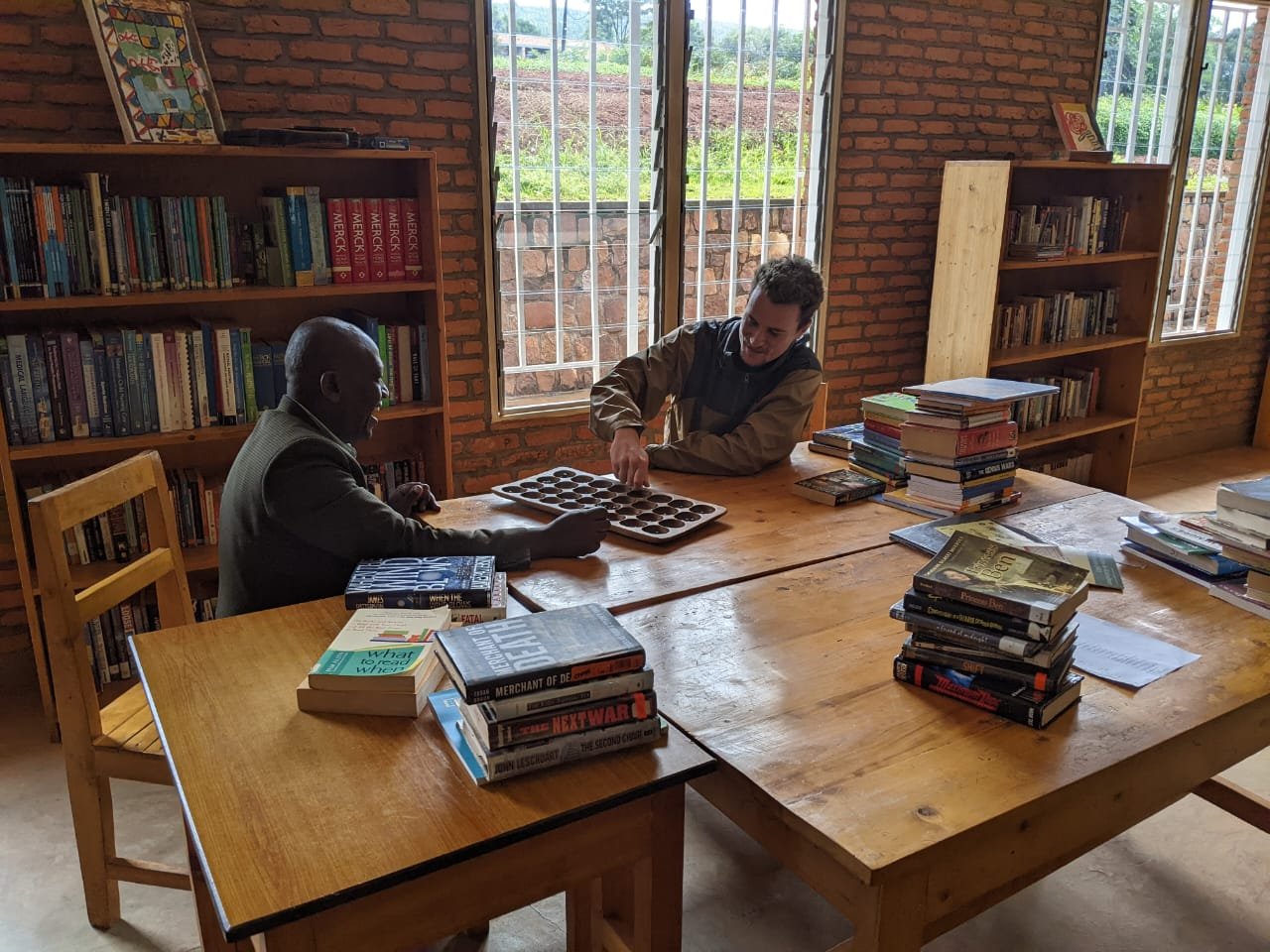As I’ve stated before, the country is full of hills and luscious green backdrops. I can now sit back and appreciate the scenes around me - rows of banana trees that look like paintings, people cultivating in the fields, hang outs at the water pumps, the exotic and vibrant birds flying around, crowds of schoolchildren in uniform yelling “muzungu (white person)” as I cruise by, smoke from the trash fires in the hills, goats eating on the side of the road (always feels like one is going to just dart out), women in kitenge wraps carrying a baby on their back, while balancing a mountain of food on their heads, yellow jerry cans. The moto rides capture the essence of daily life in the village. A 20-minute ride is like reading a few books; each turn opens to a new road, with new characters, images, and a different story to tell. Since my fears have subsided significantly since my first trip, I now enjoy the moto rides because of the time it gives me to think; and I think about everything. What was once a stressful part of my day is now a time I look forward to.
The buses have been an easier transition for me (although the first one I took I got off at the wrong spot and had to walk 25 minutes to the court). There’s no room to be bashful on the buses between villages, and be sure to give yourself extra time to accommodate Rwanda’s schedule. The bus from Kabardondo to Nyamirama, for example, is a 10-minute drive - on paper. Ah but wait, the bus at Kabarondo Bus Park won’t leave until it’s full. Twenty minutes go by and now you’re finally on your way. Okay, I can text the coaches and tell them I’ll be there in 10 minutes, right? For sure you can’t. Along the way, the bus will stop half a dozen times, people will get off and get on. Nice try. Keep a book on hand and don’t let the thoughts of frustration enter your mind.
Once you’ve grown accustomed to this dynamic, its easy living. Again, I’ve come to appreciate this time in transit. The bus offers a chance to spark up a conversation with a local who speaks a little English, to people-watch on the bus, and just see life happen around you.
One of my favorite memories is actually when I was waiting nearly 30 minutes for this bus I was on to fill up so we could leave the bus park. Not ideal, but I was calm because the driver was jamming to some old-time Don Williams. Couldn’t believe it, being the big-time country fan I am. This place is full of surprises.

